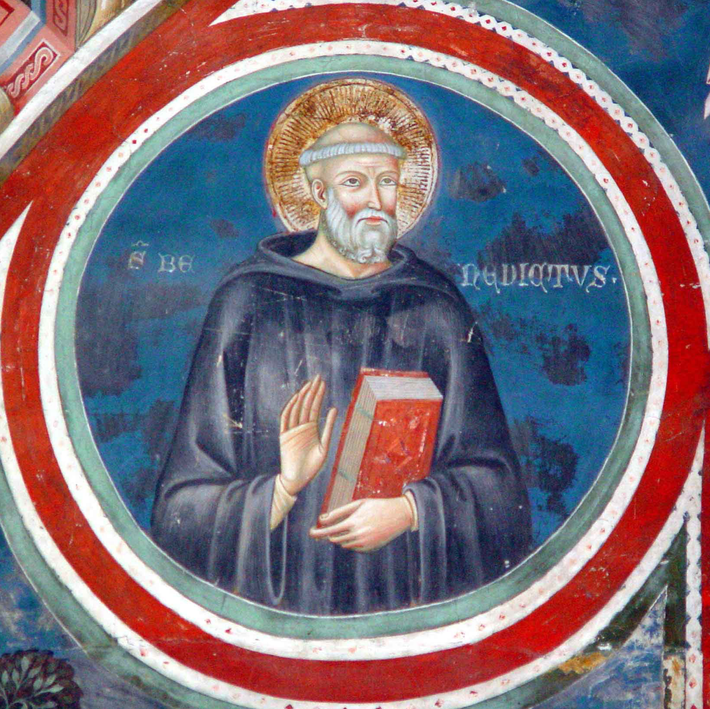Message from Abbot Paul - Feast of St Benedict, Patron of Europe, 11th July
Message from Fr Paul for Saturday, 11th July 2020
Today we celebrate the feast of St Benedict, who died at his monastery of Monte Cassino on 21st March 547. He was born at Nursia (modern day Norcia) in Umbria, Italy, around 480. As you all know, before the age of 20 he abandoned his studies at Rome and fled to Vicovaro, in the Apennine Mountains near Subiaco, to become a hermit and dedicate himself to a life of total simplicity and prayer. We can read all about it in the Life written by St Gregory the Great, a beautiful document, which, like the Gospels in relation to Jesus, presents us with a profound theological reflection on the monastic life as well as details of the life of our saint. I had the immense privilege of visiting Norcia, Subiaco and Monte Cassino frequently as a small boy, taken there by my Uncle Paul, and grew to love St Benedict at an early age, as I did St Francis too. How best to describe the Rule of St Benedict today? It’s a small book that sets out a way of life, which is at the same time both spiritual and practical, based entirely on Scripture and with Christ at its heart. Although written for communities of monks, it’s easily adapted to family life or even to running a business. It’s a great companion to have on the journey of faith and helps us focus on what is truly necessary.
Today’s short Gospel passage comes from St Matthew (Mt 19: 27-29). Peter, in the name of the Twelve, asks Jesus, “What about us? We have left everything and followed you. What are we to have, then?” Not very noble sentiments, to be sure! Jesus tries to elevate the conversation to a higher plane, reminding them that they are at the service of God and that the ultimate reward is the gift of eternal life in the kingdom of heaven: anything else would be of no value. Not only that, but “Everyone who has left houses, brothers, sisters, father, mother, children or land for the sake of my name will be repaid a hundred times over, and also inherit eternal life.” Becoming a Christian, let alone a monk, means giving up a good many things, the values of this world, for example. The Christian life really involves a “leaving behind” of our selfishness and self-centredness, in that our lives become centred on Christ, in whom alone is salvation. We exchange the old for the new and, through the working of the Holy Spirit, we acquire the mind of Christ, in that way conforming our will to the will of God. Let us ask St Benedict, through his teaching and prayers, to help us walk in the paths of the Gospel, so that in all things God may be glorified.










